The first humanitarian aid convoy destined for the beleaguered Gaza Strip has begun its journey through the Rafah border crossing from Egypt. This significant humanitarian effort follows days of diplomatic negotiations regarding the terms of delivery.
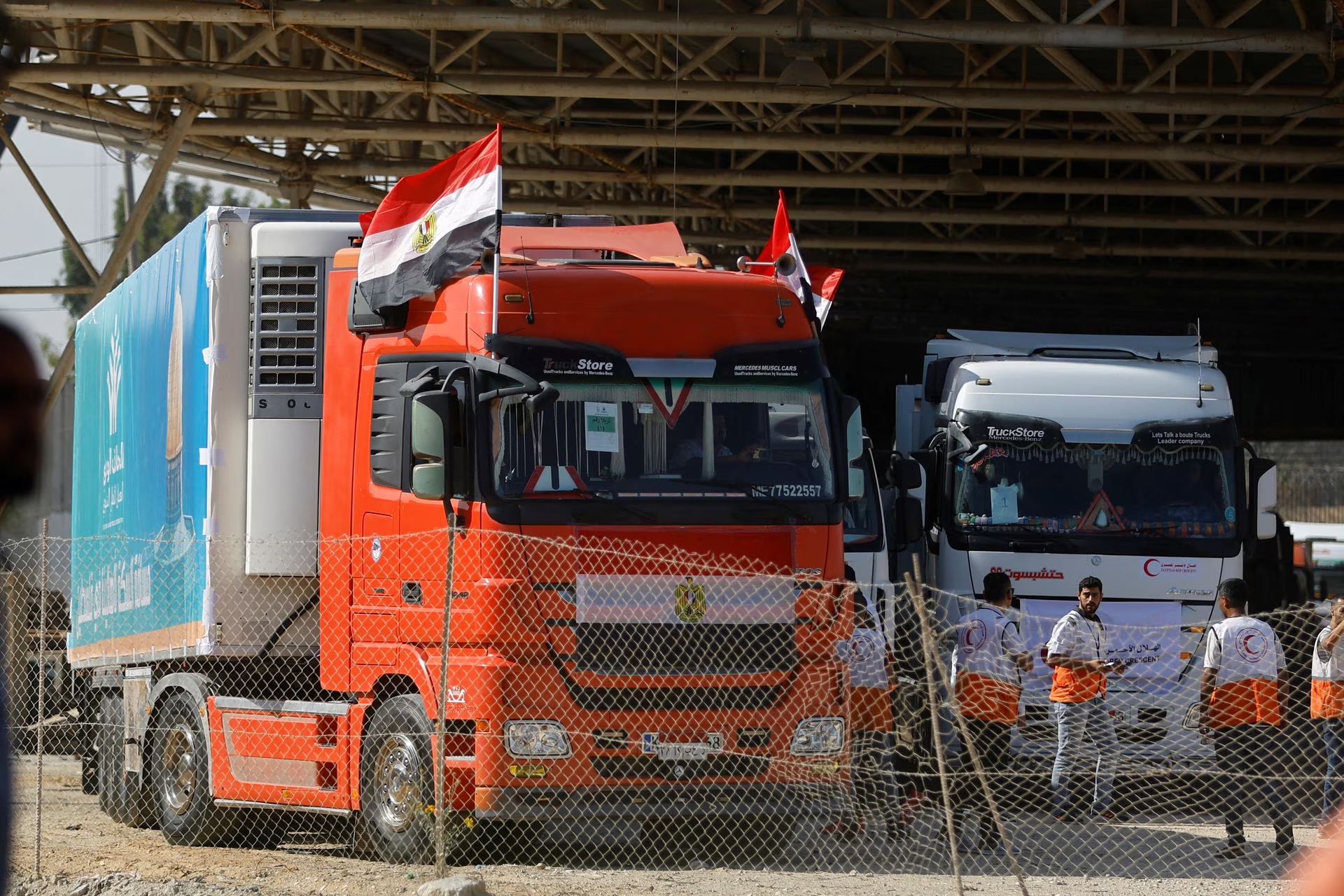
The convoy, consisting of 20 trucks, carries crucial, life-saving supplies, and is slated to be received by the Palestinian Red Crescent. Hamas, the governing authority in Gaza, has confirmed that the delivery includes essential medicines and limited quantities of food.
The Rafah border crossing represents the primary non-Israeli controlled access point for the Gaza Strip and has been the focal point for aid delivery endeavors to Gaza's 2.3 mn residents, given its strategic location.
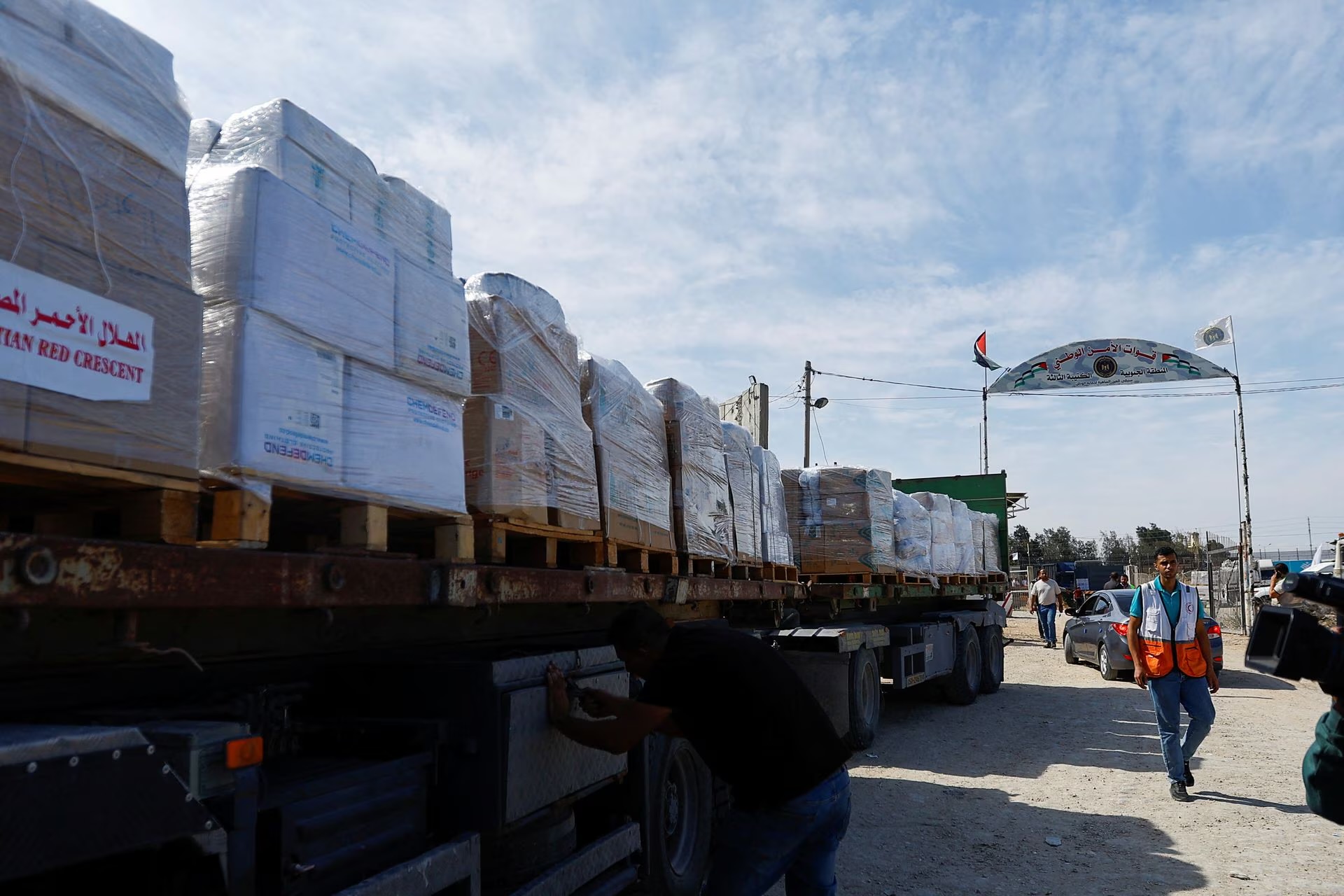
The United Nations has stressed that a minimum of 100 trucks daily is required in Gaza to meet the urgent humanitarian needs. Prior to the outbreak of conflict, around 450 aid trucks were arriving in the region each day.
"The humanitarian situation in Gaza – already precarious – has reached catastrophic levels," stated U.N. humanitarian chief Martin Griffiths in a recent press release.
He expressed optimism that this delivery marks the initiation of a sustained effort to provide essential supplies, encompassing food, water, medicine, and fuel.
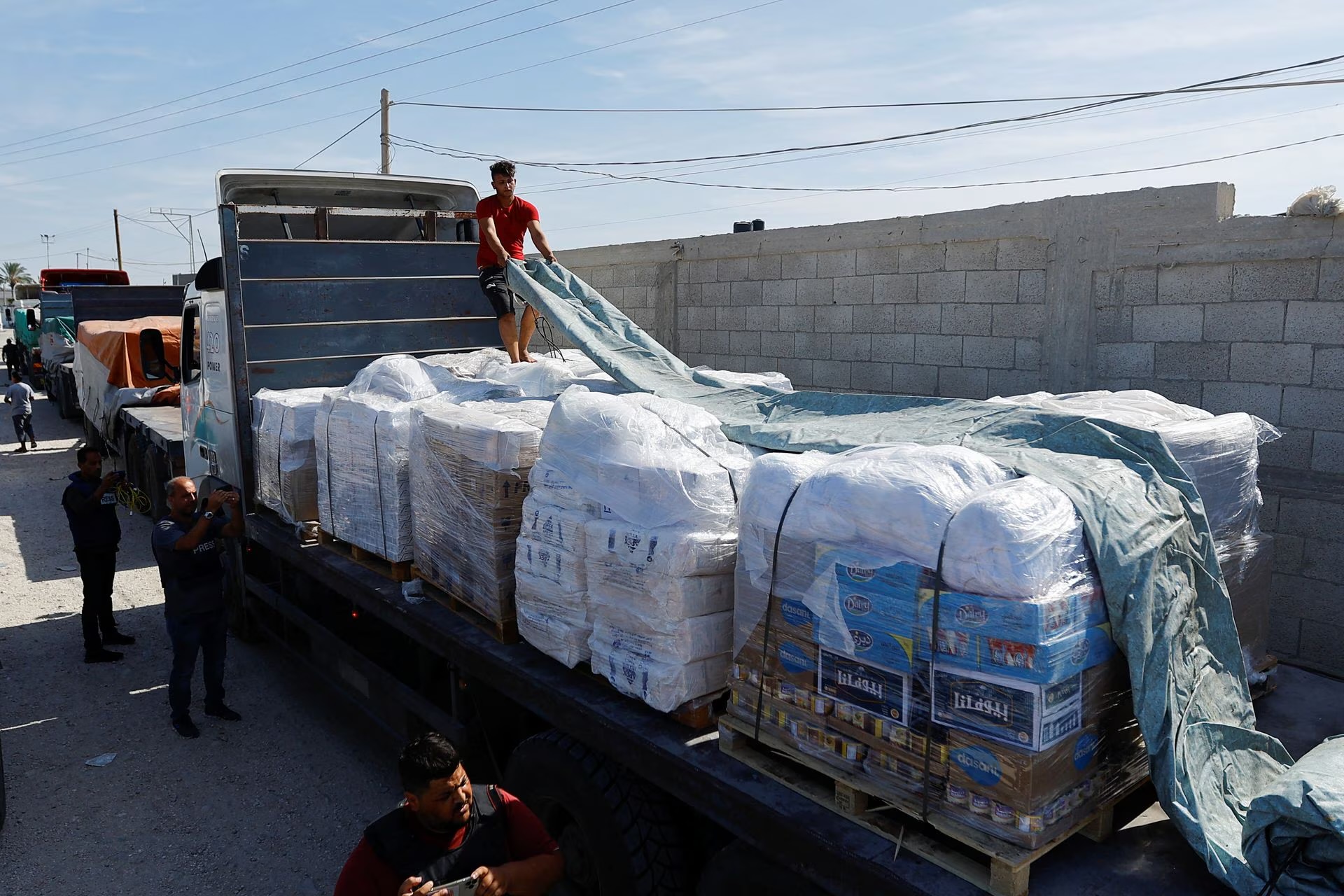
Following a deadly attack on Israeli territory by Hamas on October 7, Israel imposed a comprehensive blockade and carried out airstrikes in Gaza. This led to the closure of the Rafah crossing, with subsequent damage to roads and infrastructure on the Gaza side. Israel has affirmed that it will not allow aid to enter its territory until Hamas releases the hostages it took during its attack and ensures that the aid does not fall into the hands of the group.
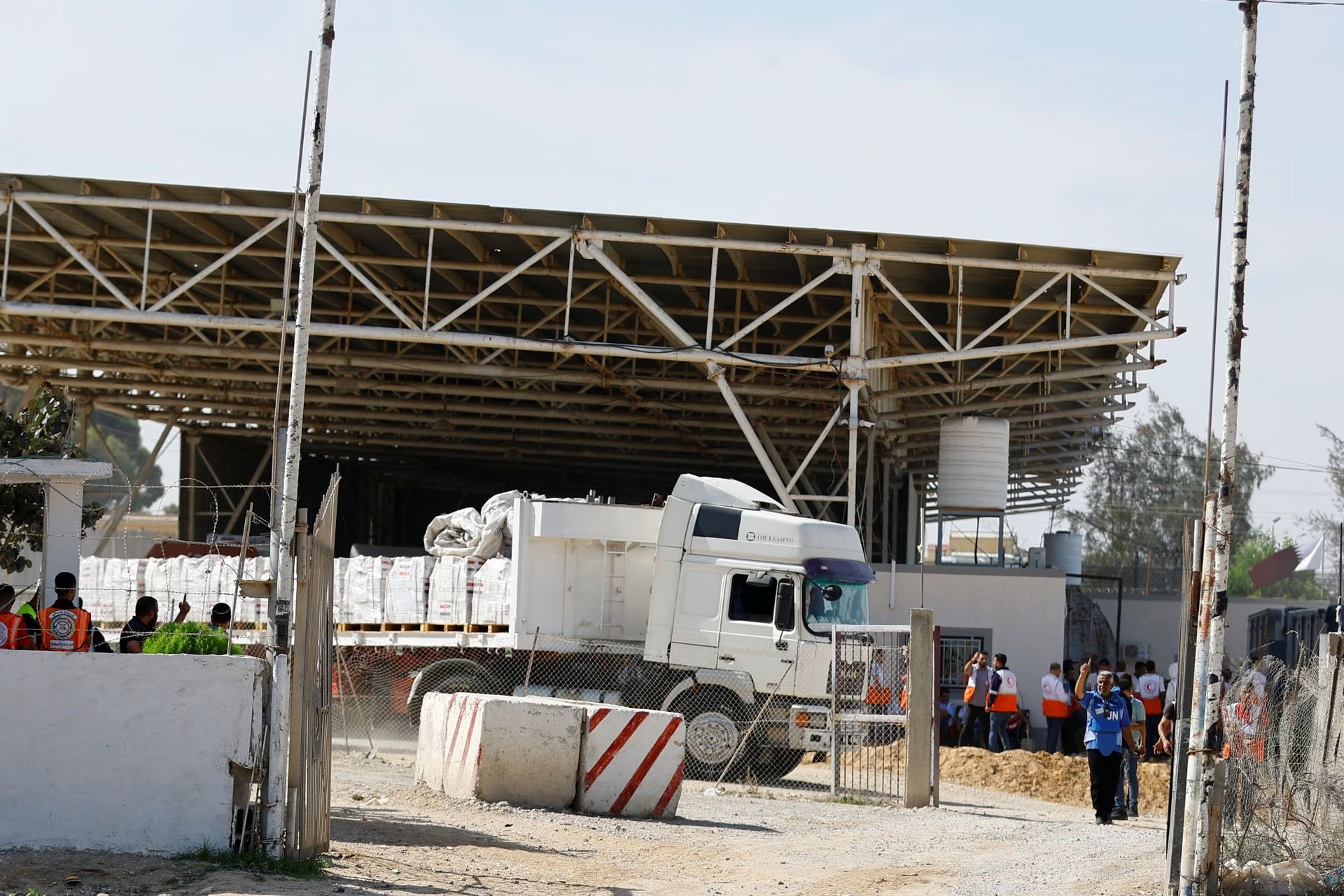
LACK OF SUPPLIES
Western nations have been actively working to evacuate foreign passport holders from Gaza, and the U.S. Embassy in Israel indicated that the border opening on October 21 could facilitate the departure of foreigners from the region.
U.N. Secretary-General Antonio Guterres personally visited the border area on October 20 to advocate for the swift delivery of aid. He stressed the importance of finalizing a mechanism for aid inspection, as requested by Israel, and urged that the delivery of relief should not be contingent on the release of hostages or the evacuation of foreign nationals.
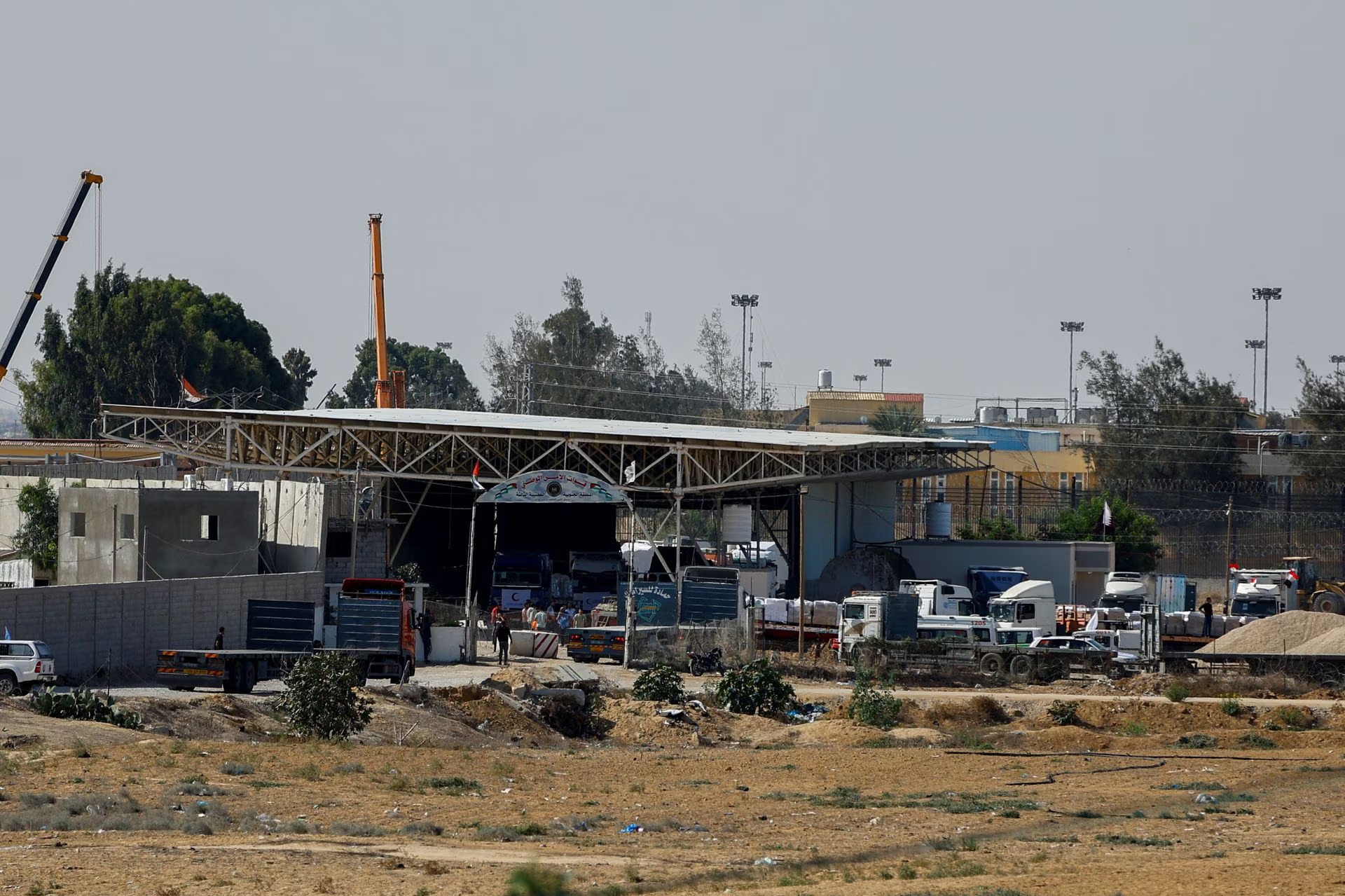
In response to the ongoing airstrikes in the north, many of Gaza's residents have sought refuge in the southern part of the territory.
Mahmoud Abu Atta of the Palestinian Red Crescent, who was present at the Rafah Crossing to receive the aid, stated;
"We have increased the logistical and operational capacity of the Red Crescent by recruiting more volunteers and acquiring additional vehicles. We have also secured storage facilities in Khan Younis and Rafah to store food and medical supplies."
Follow Daryo's official Instagram and Twitter pages to keep current on world news.
Comments (0)